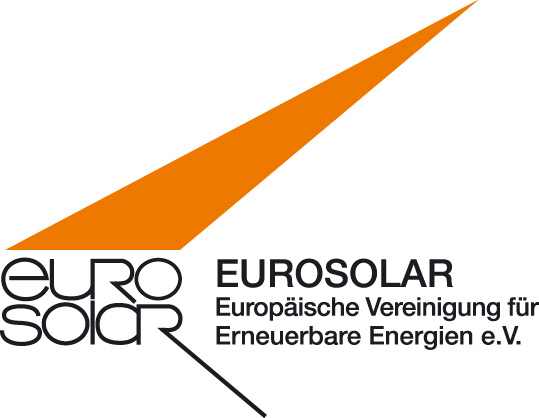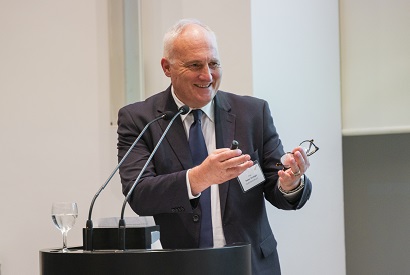It has been a long path from French foreign minister Robert Schuman’s peace vision and his declaration of 9 May 1950, proposing the sharing of French and German coal and steel production – both industries that were the main sources of WWI and II war fighting capabilities – under one high authority, opening the path to the joining of other European countries, and ultimately leading to the European Union of today. From this shared and central-authority based Peace initiative to the more complex – and frequently culturally grounded – assertion of local self-reliance of today leads the path to greater resilience – through the peace reinforcing power of renewable energy and network technologies. Today the rigid adherence to centralisation may undermine Robert Schuman’s very peace vision. In the year of the elections of what may become an increasingly fractured European Parliament it is important to recall the peace building role of the EU project, and the need to find unity in complexity, and the actualisation of the renewable age in the societal landscape of the new Europe.
Given today’s realities and quests for fighting climate change through renewable energy it is difficult not to support the vision of a renewable Catalonia inside a renewable Spain inside a renewable Europe – inside a regenerative world of diversity and cultural authenticity. A Europe of 100% renewable regions and cultural self-determination does not conflict with – it actually supports – the ideals of an integrated and connected Europe. Let’s not use the ugly world ’separatism‘ when describing legitimate quests for regional identity – it is wielded by those who desire monolithic control. Also, Catalonia’s history in this is so rich and special that it must not be held up as a bogeyman and generalisation in the drive for harmony and unification. By contrast the neo-nationalist Brexit faux-pas seems like a completely different story, ignoring regional hopes within, in its launch preying on fears and ignorance, in a process that was underinformed at best.
There are those decrying the historical desire of Catalonians to be recognised in the culture, language and right to self-determination. There are those who say this amounts to ’separatism‘ and undermines the European Project – but they don’t fully understand the true promise of Europe: union in diversity. There are those who feel that top-down decisions or larger, consensus driven change processes are better in the fight against climate change – but in reality this has meant painfully slow progress, even regress, and also that the lowest common denominator prevailed. This is not a good strategy when we want to overcome flawed energy and other climate destabilising policies quickly. Besides, this runs against the very quality of renewable energy and its locally empowering possibilities. Bottom-up, local innovation should be actively rewarded and then adopted by the majority as its new standard. This new ‘sustainable subsidiary standard rule’ should become Europe’s paramount principle of renewable practice.
We very much applaud and celebrate Spain declaration of a Paris-based climate target: Spain pledges 100% renewable electricity by 2050, and a 90% emissions reduction. While commonly used, 2050 targets, however, due to their distance are virtually meaningless in the real world – and the aiming at 100% renewable power by mid-century is entirely inadequate given the advanced state of climate destabilisation. 90% emissions reduction goals, too, are vague, given what can be counted to offset emissions. Today, we all have to aim at 150% reductions given the level of atmospheric concentrations: over 410 ppm, while they should be 280.
No phase-out dates are set of nuclear or coal power by Spain yet – and a welcome ban on new fossil combustion powered cars postponed to 2040. In addition, Spain’s vision focuses more on large scale projects benefiting large operators, while Catalonia’s plans are more clearly aimed at individual and community prosperity and empowerment. Why should Catalonia’s identical aims but superior means not help inform Spanish aspirations? Catalonia’s 2017 climate targets were more advanced than those of Spain and yet had been ignored by Madrid at the time. Let there be a race to 100% at any level simultaneously – the ideal of renewable regions does not contradict but strengthens the framework of an innovative, renewable Europe.
This is a time to move onward and upward a rapidly as possibly, at all levels, and in embracing empowerment of the regional, the local – and the European framework enabling self-determination: this is the promise of an authentic subsidiarity principle that is worth believing in – the elevation of successes at the local and regional level to national, European and global principle and standard. While still far too timid and nuclear and fossil-fuel focused, European renewable energy and climate targets are increasingly pursued in one highly promising direction expressed in the directives and various funding programs encouraging cities and regions to advance renewable energy communities. Here positive energy subsidiarity, local resource self-reliance and politico-cultural self-determination culminate in the Catalonia promise which we all can celebrate in optimism.‘

